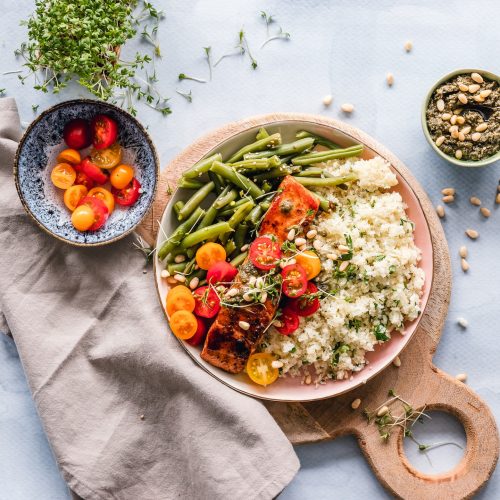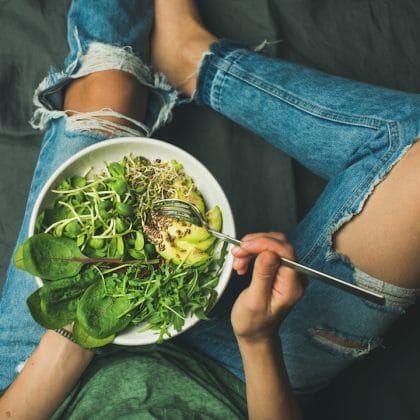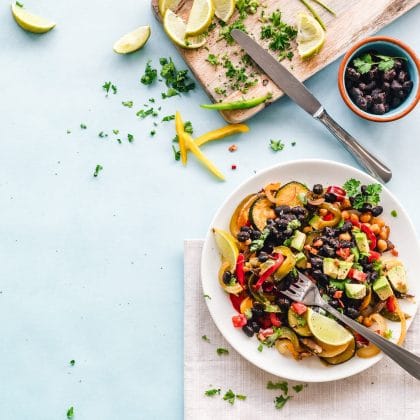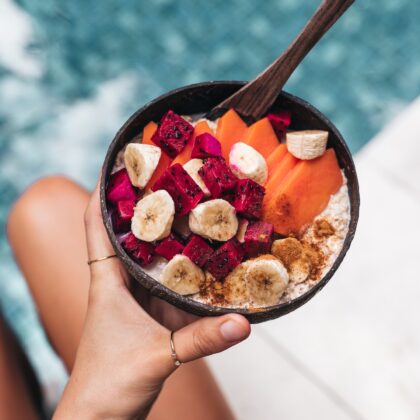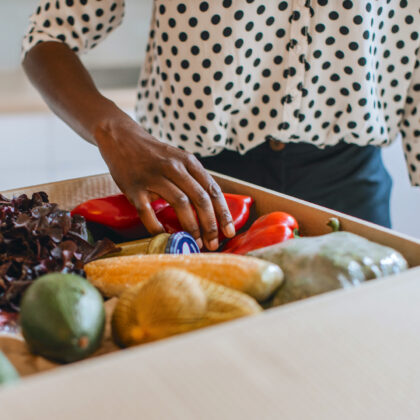Did you know specific foods have been shown to reduce anxiety? These nutrient-rich ingredients can increase the levels of happy hormones, like serotonin, in our body.
Stress is inevitable in our lives. Often, we think stress is related to negative attributes, but positive events such as a job promotion, moving, relocation, wedding planning and expecting a child, can all trigger stress. How we choose to deal with it can have profound effects on our mental and physical health. If we have issues with managing stress, we may put ourselves at risk of feeling anxious more often than not.
Physiologically, our body responds to stress by producing and releasing stress-related hormones such as cortisol. As mentioned in our immune boosting feature, cortisol is known to lower our immune function, which makes us more susceptible to the common cold. It can elevate our blood pressure, increase our risk of heart disease and interfere with learning and memory.
Chronic stress can have adverse effects on our health, but there are many different strategies to cope with it and quell anxiety. From a physiological standpoint, we want to reduce stress by suppressing the levels of stress-related hormones and to increase the levels of happy hormones, such as serotonin in our body.
One of the ways to achieve this is through eating foods that contain nutrients that promote the production of serotonin and other relaxation-related chemicals. There are a few nutrients that can help with uplifting our spirits: protein, B vitamins, vitamin D, Omega-3, calcium and magnesium.
Read more: These Are The Healthiest Travel Snacks, According To A Registered Dietitian
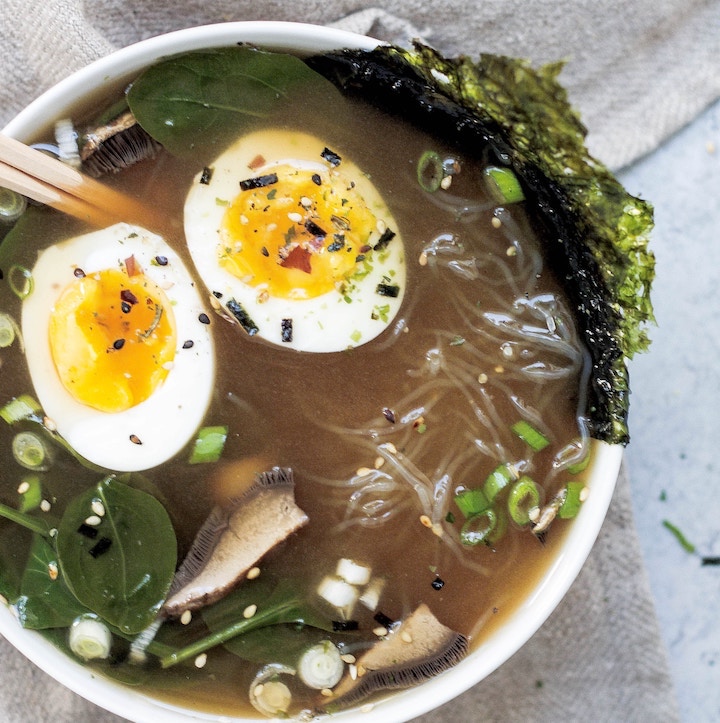
Protein
Protein plays an important role in growth and development, but it also plays a huge part in keeping us at ease. One of the building blocks of protein, tryptophan, is responsible for making serotonin. Because tryptophan is a type of essential amino acid, which the body cannot produce, it has to be obtained through food. It is present in a variety of foods including meats, poultry, fish, shellfish, eggs, tofu, legumes, nuts and seeds. Some dark leafy greens, such as spinach, also contain tryptophan.
Another notable amino acid called tyrosine is used to make dopamine, a chemical messenger in the brain that promotes the feelings of pleasure, motivation and alertness, and affects memory. While our body is capable of making tyrosine, it is also an amino acid found in meats, fish, eggs, milk, cheese, cottage cheese, yoghurt, almonds, banana, sesame seeds and pumpkin seeds. These foods can help your body create more tyrosine.
How much protein do you need?
Including protein as part of meals and snacks is key to setting the tone of the amount of food we have in one sitting. The amount of protein required varies from individual to individual.
To determine how much protein you need, simply take your weight in pounds and divide by two. For example, if you are 120 pounds, you will need 60 grams of protein per day. To keep your food intake sensible and to feel satiated, space out the protein through the day by including 15 to 30 grams of it in each meal and snack.
Read more: What Nutritionists Are Actually Eating For Gut Health
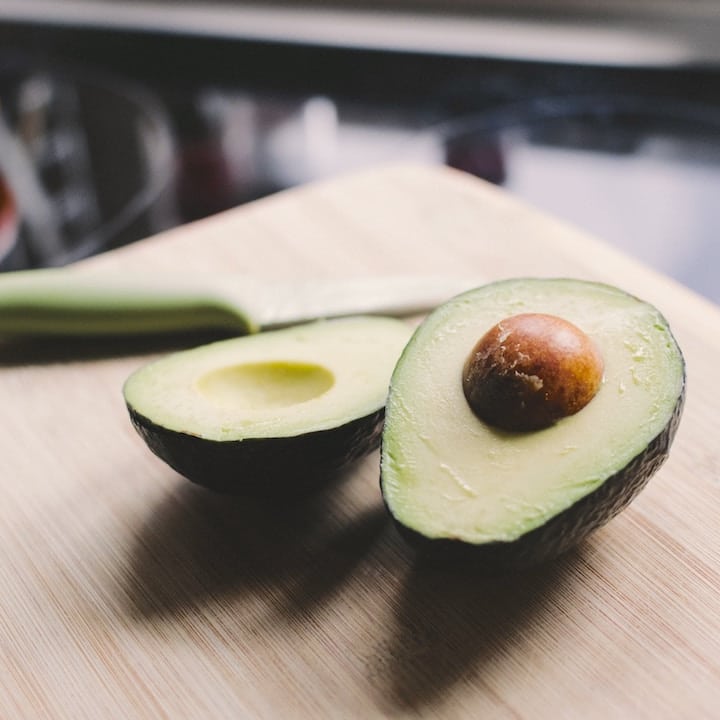
B Vitamins
In addition to protein, there are three B vitamins that assist with producing serotonin and other brain chemicals that affect mood: vitamin B6, folate and vitamin B12. Low levels of these B vitamins may be linked to anxiety and depression. Vitamin B6 is found in vegetables, nuts, avocados, meats, fish, bananas and potatoes.
Folate plays a pivotal role in converting tryptophan to serotonin. It is present in edamame, spinach, broccoli, kale, beans and fortified cereals and breads (an F symbol will be displayed on the food packaging of fortified cereals and breads). Vitamin B12 is commonly found in protein-rich foods such as meat, poultry, fish, shellfish, eggs and dairy products.
Do note that vitamin B12 is present only in animal sources, which means if you are vegetarian or vegan, you may consume soy-based meat substitutes that are fortified with vitamin B12 to prevent deficiency. To ensure the meat-substitute product contains vitamin B12, read the Nutrition Facts on the food packaging. Alternatively, you may also take a vitamin B12 supplement to prevent deficiency. However, it is best to check with your doctor to see if supplementation is needed.
Vitamin D
Like vitamin C, vitamin D levels can be affected by the presence of cortisol. While there are varying amounts of vitamin D in foods, such as cold-water fish (like Atlantic mackerel, cod and haddock) and fatty fish (like salmon, herring and sardines), egg yolks and some fortified rice, soy and almond beverages, the most effective and natural way to get vitamin D is by exposing your skin to the right amount of sunlight.
Read more: Give Your Immune System A Boost With These Nutrients
Omega-3s
Omega-3 fatty acids are well-known for reducing our risk of heart disease, but more emerging evidence shows that a diet rich in omega-3s, particularly docosahexaenoic acid (DHA) and eicosapentaenoic acids (EPA), may also help with managing stress and maintaining a healthy mood.
Both DHA and EPA can be found in fatty fish such as salmon, mackerel, herring, halibut and sardines. Therefore, having fish twice a week is not only beneficial for our heart, but also for our mood. And if we’re swapping red meat out for it, it could also be helping the planet.

Calcium
Calcium is notorious for being a major player in bone health, but it is also an essential component part of our nervous system. A lack of calcium may increase the symptoms of anxiety and the risk of depression. While calcium is predominantly found in dairy products like milk, cheese and yoghurt, it is also present in non-dairy sources such as canned salmon and sardines, and in vegetables like kale and spinach.
Read more: 5 Dietitian-Approved Snacks To Help You Get Through The Work Day
Magnesium
Magnesium also helps to reduce anxiety. Food sources with magnesium include brazil nuts, legumes, dark green leafy vegetables, dairy products and whole grains such as oatmeal, quinoa and brown rice.
Adopting a nutritious diet…
Including foods with nutrients that have stress-fighting capabilities is one way we can ensure we’re eating a varied diet. Being proactive in making positive changes to your diet can uplift your spirits and, ultimately, lead to a healthier lifestyle!
Editor’s Note: This post was originally published in February 2018 by Novella Lui and was updated in March 2020.
Featured image courtesy of Ella Olsson via Unsplash, image 1 courtesy of Alison Marras via Unsplash, image 2 courtesy of Kelly Sikkema via Unsplash, image 3 courtesy of angela pham via Unsplash.





 Eat & Drink
Eat & Drink



 Travel
Travel



 Style
Style



 Beauty
Beauty



 Health & Wellness
Health & Wellness


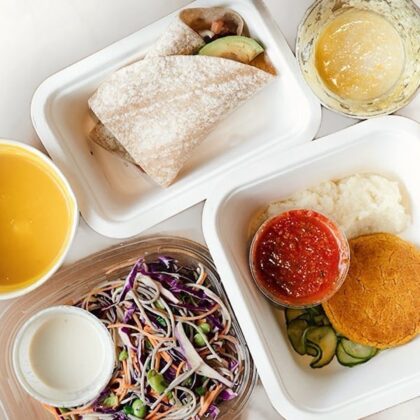
 Home & Decor
Home & Decor



 Lifestyle
Lifestyle
 Weddings
Weddings



